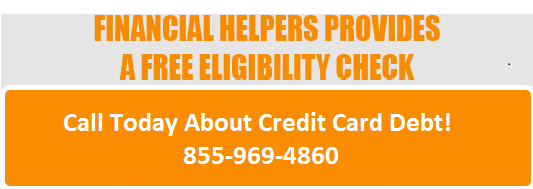5 Ways to Save $531 Every Month

Your budget is bulging at the seams. You know there’s got to be a better way to budget, leave some room for an indulgence or two and save money. There is a way. Take the reins of your financial situation, treat yourself and potentially pocket $500 a month in savings.
1. Consolidate Unsecured Debt into One Lower Monthly Payment
Credit cards are an example of unsecured debt, and quite often, the most frequently cited reason for overwhelming monthly debt expense. If your monthly credit card payments are straining your budget to the bursting point, explore consolidation. The average household carries two to five cards and spends approximately $650 per month making payments. Consolidate those cards and reduce your monthly expense by $225-$325.
2. Refinance Auto Loans
A monthly car payment follows as a close second to your monthly rent or mortgage payment. It can be one of your biggest budget busters! Financing options for automobiles range between 48 to 72 months. Examine your current loan. It might be possible to refinance from a 48-month term to a longer period of 72 months and reduce the payment up to 50 percent! You could potentially save yourself several hundred dollars each month.
3. Re-Evaluate Auto (and Other) Insurance Needs
Life today is filled with all sorts of insurance requirements and needs. Medical, auto, life, home – and insurance is one of the most neglected areas of our lives when it comes to assessing for savings. As a general rule, we should evaluate our insurance needs on a yearly basis because of life changes that occur over time, e.g. marriage, divorce, etc.. That yearly review could net you 25-percent savings on insurance expense. So, if you’re currently spending $2,000 a year on all your insurance coverages, it could mean an extra $500 in your pocket each and every month.
4. Opt-In for Student Loan Consolidation
Student loans are big business. The average college graduate is carrying $30,000 in debt. Quite often, the debt is spread over three to five loans, with payments totaling more than 35 percent of the borrower’s monthly income. If you are one of the more than 1.3 million graduates struggling with monthly student loan payments, you should consider loan consolidation. There are federal as well as private options that allow you to consolidate into a single loan option with one monthly payment. Federal programs will also allow you to choose an option based on your monthly income; if you’re just starting your career and your monthly income is at a lifetime low, this option could reduce your payment to a much lower level. With three to five loans, you could be paying as much as $400 each month; consolidated, the monthly payment would be closer to $250 per month. You could realize a monthly savings of over $150!
Did you know that there are actually companies out there that specialize in consolidating your loans insanely quickly and efficiently? Used by millions…Click here to find out more.
5. Explore a Credit Repair Option
Quite often, bulging (or completely busted) budgets lead us down the dangerous path of poor credit. Missed payments, late payments and loans that are in default contribute to declining credit scores. As a result, obtaining new credit becomes more difficult, and if approved, it comes with a higher interest rate. Proactively working to repair your credit file really does save you money, it’s just that it doesn’t happen overnight. However, if you realized any savings from the options presented above, you can, with persistence, improve your credit score. Begin to make payments that are more than the minimum, make payments early and strive to reduce the amount of debt that you carry. All of these steps work to improve your credit score, and an improved credit score opens doors to better credit options.
So what are you waiting on? Get up off the couch, explore all the options in this article and watch the expenses shrink, the budget improve and your savings grow! All while you sip that special latte!




